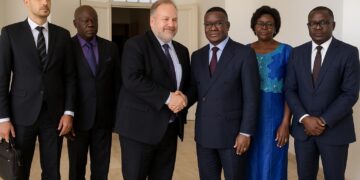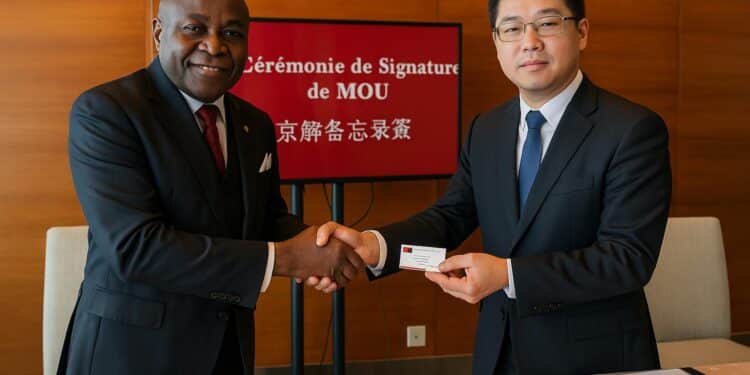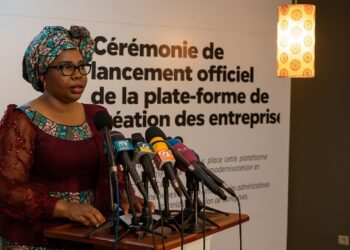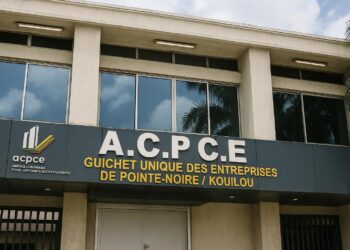MoU marks fresh momentum for Congo’s digital agenda
Brazzaville’s Ministry of Posts, Telecommunications and the Digital Economy announced on 18 September that it has signed a memorandum of understanding with Shenzhen-based Genew Technologies, opening the door to fresh investment across Congo’s fast-evolving digital ecosystem.
For the government, digital activity is now cited as the fifth pillar of the 2022-2026 National Development Plan, alongside hydrocarbons, agriculture, industrialisation and tourism, underscoring official intent to diversify revenues and expand inclusive services through information and communication technologies.
Genew, established in 2005 and already active in more than 20 countries, specialises in optical transmission, core network software and emergency response systems; authorities believe such engineering depth can help accelerate nationwide backbone upgrades and prepare the ground for 4G, 5G and cloud computing roll-outs.
Multilateral financing underpins broadband and e-government
Minister Léon Juste Ibombo described the MoU as a springboard for modern, resilient infrastructures, notably cross-border fibre links, carrier-neutral data centres and secure government intranets that should strengthen public administration efficiency while lowering connectivity costs for businesses and rural communities.
Another plank of the partnership targets human capital: Genew has proposed scholarship programmes, joint research with Marien Ngouabi University and certification tracks in machine learning, aiming to equip young Congolese engineers with skills demanded by artificial-intelligence-driven industries across Central Africa.
The memorandum dovetails with the $100 million Digital Transformation Acceleration Project approved by the World Bank in June 2022, which seeks to expand high-speed broadband, integrate e-government platforms and stimulate tech entrepreneurship through concessional credit and performance-based grants.
World Bank documents highlight expected financing for 1,100 kilometres of additional fibre, a secured government cloud, and an open-data portal designed to improve revenue mobilisation, land management and health surveillance.
Complementing multilateral funds, the European Investment Bank is extending 27 billion FCFA, roughly $48.7 million, to co-finance rural towers and community internet points, ensuring that remote districts from Sangha to Kouilou are not left behind in the digitalisation drive.
According to the bank, the programme should raise mobile 3G availability for an additional 404,000 people, certify 3,000 citizens in digital competences and facilitate daily access to online public services for 75,000 users, a substantial boost in a nation of 5.7 million inhabitants.
Infrastructure build-out gains regulatory tailwinds
Genew executives stress that their optical transport solutions already comply with ITU-T standards adopted by the Congolese Regulatory Agency for Electronic Communications and Post, shortening procurement timelines once tenders linked to the World Bank project are formally issued.
Infrastructure firm Fiber Congo, operator of the terrestrial link connecting Brazzaville to Pointe-Noire, views the possible entry of Genew as complementary rather than competitive, citing opportunities to integrate advanced routers and IP multimedia subsystems into the Central African Backbone corridor.
Legal groundwork is also evolving: this year parliament amended the telecommunications code to introduce tax holidays for strategic network investors and to legalise public-private partnerships in data centre construction, provisions expected to benefit Genew and other international vendors.
The MoU was signed in Changsha on the sidelines of the BRICS New Industrial Revolution Forum, a platform where Congo promoted its plan to position Brazzaville as an interconnection hub between Atlantic cabling routes and landlocked CEMAC neighbours.
Strategic cooperation with China deepens
President Denis Sassou Nguesso currently co-chairs the Forum on China-Africa Cooperation, granting the republic privileged access to Chinese concessional lending and supplier credits that could be mobilised to complement multilateral envelopes and accelerate last-mile deployment.
Observers note that Beijing’s Global Development Initiative lists digital connectivity among its eight priority areas, aligning neatly with Congo’s own ambition to raise the ICT sector’s share of GDP from 3 percent today to 10 percent by 2026.
Investor outlook and skills roadmap
Potential upside for investors includes rising demand for microfinance, fintech and data-hosting, areas underscored by the Central African Banking Commission’s recent sandbox guidelines and by the regional stock exchange’s pledge to digitise bond issuance processes.
Several private operators have already voiced interest in establishing edge data nodes near upcoming hydropower stations, hoping to capitalise on competitively priced renewable electricity while meeting low-latency requirements of e-commerce, telemedicine and smart-mine applications.
If the Genew partnership materialises into concrete projects within the next two years, analysts believe the network effects could lift productivity across agriculture, forestry and logistics, reinforcing Congo’s objective of achieving upper-middle-income status by the early 2030s.
Capacity-building remains central to the roadmap. The Ministry plans to create an Academy of Digital Professions in partnership with Genew, the United Nations specialised agency ITU and the Université Denis Sassou Nguesso, offering courses in cybersecurity auditing, cloud orchestration and entrepreneurial project management.
Progress will be monitored through a dashboard of 42 indicators, including broadband price-to-income ratios, locally hosted domains and the proportion of public payments conducted electronically, providing investors and development partners transparent metrics to gauge policy performance. Quarterly results will be published in both French and English to maximise accountability online.












































